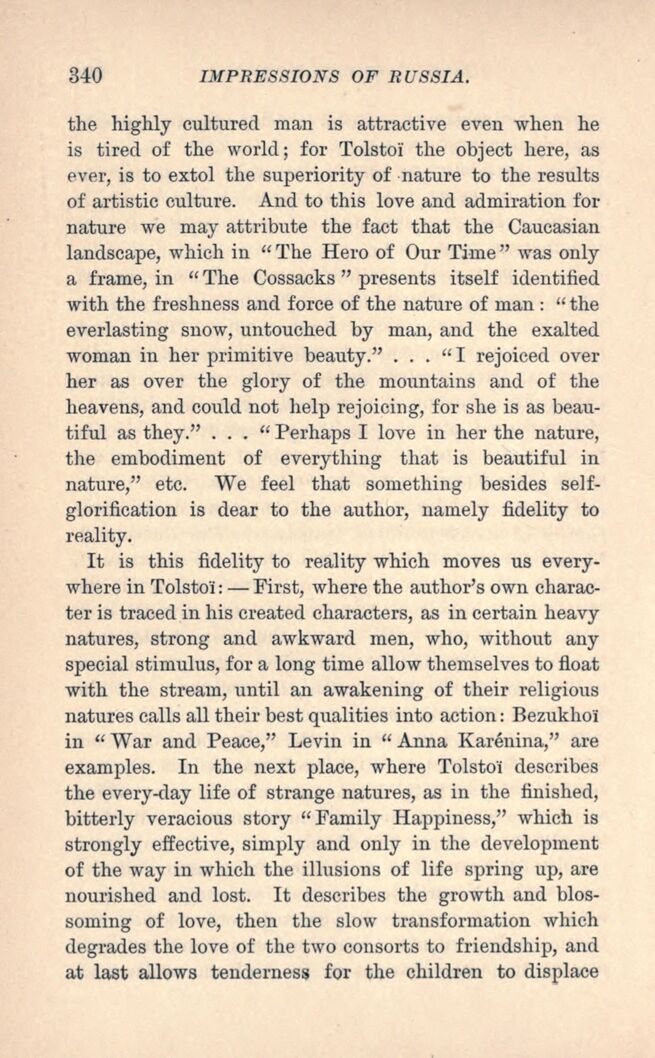
Full resolution (JPEG) - On this page / på denna sida - Impressions of Russian Literature - VII

<< prev. page << föreg. sida << >> nästa sida >> next page >>
Below is the raw OCR text
from the above scanned image.
Do you see an error? Proofread the page now!
Här nedan syns maskintolkade texten från faksimilbilden ovan.
Ser du något fel? Korrekturläs sidan nu!
This page has been proofread at least once.
(diff)
(history)
Denna sida har korrekturlästs minst en gång.
(skillnad)
(historik)
the highly cultured man is attractive even when he
is tired of the world; for Tolstoï the object here, as
ever, is to extol the superiority of nature to the results
of artistic culture. And to this love and admiration for
nature we may attribute the fact that the Caucasian
landscape, which in “The Hero of Our Time” was only
a frame, in “The Cossacks” presents itself identified
with the freshness and force of the nature of man: “the
everlasting snow, untouched by man, and the exalted
woman in her primitive beauty.” ... “I rejoiced over
her as over the glory of the mountains and of the
heavens, and could not help rejoicing, for she is as
beautiful as they.” ... “Perhaps I love in her the nature,
the embodiment of everything that is beautiful in
nature,” etc. We feel that something besides
self-glorification is dear to the author, namely fidelity to
reality.
It is this fidelity to reality which moves us
everywhere in Tolstoï: — First, where the author’s own
character is traced in his created characters, as in certain heavy
natures, strong and awkward men, who, without any
special stimulus, for a long time allow themselves to float
with the stream, until an awakening of their religious
natures calls all their best qualities into action: Bezukhoï
in “War and Peace,” Levin in “Anna Karénina,” are
examples. In the next place, where Tolstoï describes
the every-day life of strange natures, as in the finished,
bitterly veracious story “Family Happiness,” which is
strongly effective, simply and only in the development
of the way in which the illusions of life spring up, are
nourished and lost. It describes the growth and
blossoming of love, then the slow transformation which
degrades the love of the two consorts to friendship, and
at last allows tenderness for the children to displace
<< prev. page << föreg. sida << >> nästa sida >> next page >>